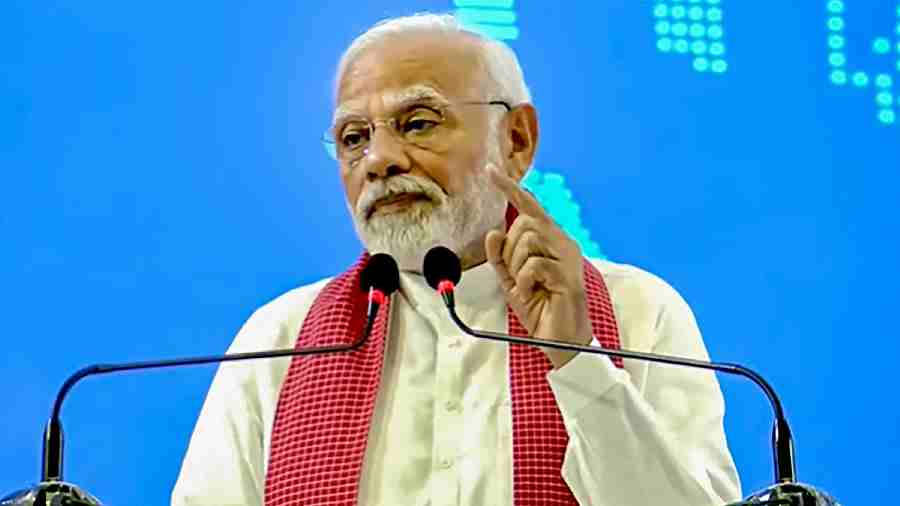Electoral triumphs seem to turn politicians conscientious. Addressing party workers after the Bharatiya Janata Party’s stupendous victory in the Gujarat assembly elections, the prime minister, Narendra Modi, stated that the future of India could be brightened by erasing, rather than creating, fault lines. The desire for unity is undoubtedly a noble sentiment. This is especially so in the case of a nation like India that has suffered on account of embedded stratifications. But the prime minister’s concern with divisions seems to be periodic and, consequently, inconsistent. During the poll campaign in Gujarat, Mr Modi’s colleague, the Union home minister, courted controversy by making a divisive remark: inverting the facts, Amit Shah had stated that the BJP’s adversaries had been taught a lesson during the violence of 2002. Neither the prime minister nor, surprisingly, the Election Commission has been critical of this deeply polarising remark. In fact, BJP leaders, including the prime minister, are known to stir divisive sentiments during elections or otherwise. Mr Modi has seldom been bothered by such utterances in spite of the damage they inflict. In fact, the proverbial shadow has fallen quite often between word and deed when it comes to the prime minister’s commitment to address or erase social chasms. Consider his pledge to usher in inclusive development. Eight years into his reign, vikas continues to be elusive for the minorities and the marginalised. Worse, assessments of social harmony in India under the Narendra Modi government have yielded grim results. These facts beg attendant questions. Is Mr Modi serious about narrowing the fault lines, many of which are being engineered under his watch? Would the prime minister have underlined the need for solidarity had Gujarat’s outcome not met his expectations?
There is an obvious inference that can be drawn from Mr Modi’s sporadic worry about the growing fragmentation. The prime minister and his party have an instrumental attitude on the matter. They keep the pot boiling when it suits them: elections are often deemed as the season to sow divisions. Once the goal of attaining political dividends out of polarisation has been achieved, the homilies in favour of bridging differences are then unleashed. Mr Modi is correct in saying that India’s future, indeed survival, depends on the ability to heal divisions. But does the regime share the vision of an inclusive, united nation? It would be instructive to examine this government’s record in creating clefts. The answer lies therein.










